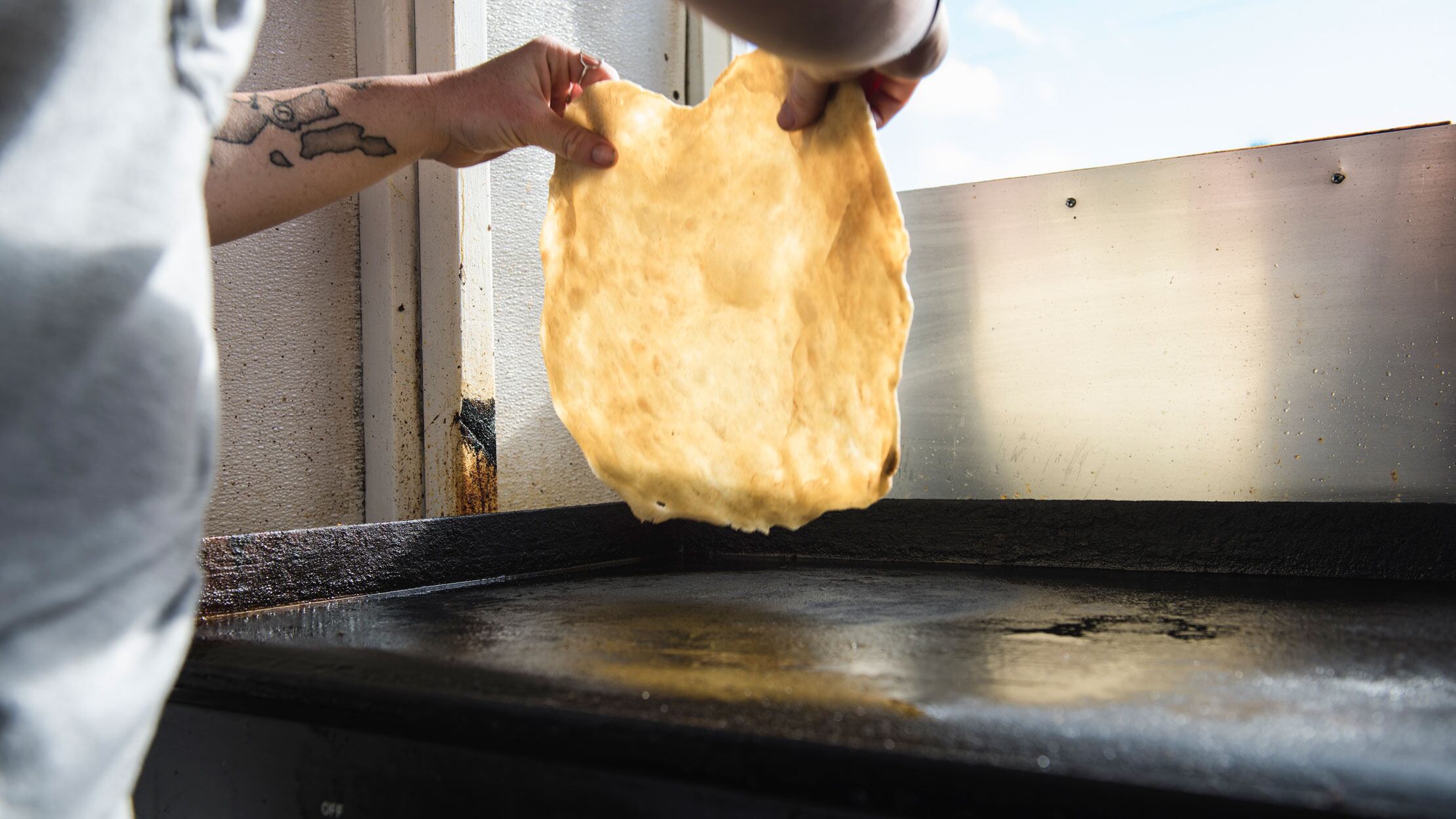I was in my hometown in rural Northern California for our annual May Day parade and picnic just a few days before the Kooks burrito review came out. Each year the Mexican church I attended while growing up hosts a taco bar at the picnic, which often ends up being one of the most popular booths at the whole event. Our town is over 90% white, and I made a joke to my sister about how the May day picnic is the only time the white people are OK with us being around.
So when I saw the review in Willamette Week a few days later, in which two white-presenting women described how they peeked into the windows of restaurants in Baja (it's always Baja) in order to learn how to make tortillas—prompting a vocal backlash and subsequent shuttering of the weekend popup—I understood pretty well the place where some readers' anger was coming from.
My dad came to this country from Mexico when he was a teenager, and thanks to immigration status and financial costs, I've never actually been to the country my family moved from after the militarization of the border made it harder for them to cross back and forth for work. Scraping together money for plane tickets is just not possible when your dad milks cows for a living, or your grandpa works in the orchards harvesting almonds.
When reading yet another story of eager white people zipping down to Mexico like it's no big deal, then opening restaurants after "falling in love" with something there, I understood the pain. It hurts to see white people enjoy your culture but not understand how their well-meaning comment affects you. It hurts to watch white people being celebrated for recreating aspects of a culture that you continue to be excluded and treated like shit for, on land that used to belong to your not-so-distant ancestors.
But I just couldn't get mad at those women beyond an eye roll because white people really can't get over tortillas. Frankly, I'd rather go a whole year without using Tapatío than spend too much time playing outrage whack-a-mole with whatever tone-deaf restaurant schtick happened to get everyone's attention that month.
Does this mean there shouldn't be a conversation about food and cultural appropriation, and that white people are off the hook for making sure they're paying proper dues to the cultures from which they're making their living?
Absolutely not.
It's just that cultural appropriation is not what caused these inequalities in the first place, and it's just one arm of a much larger system that makes it so POCs are not seen as experts on our own cultures.
Instead, I'm more interested in confronting the entire apparatus in place that make it so the dude who fell in love with Mexico on spring break is able to open a tamale bar in the ultra-gentrified Hipsterfuck Chill District, while the woman from Mexico has to risk arrest to sell tamales out of a cooler in front of the grocery store.
There are countless ways to fight systemic inequality, but I don't think one of those ways is to close every Mexican/Indian/Japanese restaurant owned by a white person, something proposed by proponents of a boycott list that appears to have been generated and circulated without anyone attempting to first reach out to the owners on the list.
Shutting down allegedly offending restaurants isn't going to end deportations, police brutality or greater economic inequality, and there's no guarantee that the establishment taking its place is going to be a panadería run by a fourth-generation baker from Zacatecas. Instead we need to focus on giving our money to businesses run by people of color that already exist, along with supporting policies and programs that fight gentrification, increase representation and allow people of color to make a living.
Beyond that, there has to be something more to this conversation than a rage-generating public callout, which strains relationships in the community and inevitably ends with the offending party being told to fuck off and go Google something, while others pore over a certain dish in order to break down the politics behind each ingredient.
One of the more unfortunate things to come out of the shuttering of Kooks Burritos is that it deprived Tight Tacos, a business owned by a person of color, of the extra revenue they received from renting their cart out on the weekends—a fact ignored by almost everyone crowing about the pop-up's demise.
To me, this was a pretty good indication that maybe this isn't the best model of public discourse, since the point of all of this was supposedly to increase opportunities for people of color, something you don't really do by forcing restaurants to close.
Cultural appropriation is a symptom of a larger problem, one we need to get to the root of. If someone is passionate about making food that people want to pay money for, then they should—with the understanding that food is not divorced from politics and a painful history of ongoing oppression. And when it comes to food and cultural appropriation, we need to stop putting the cart before the horse.
